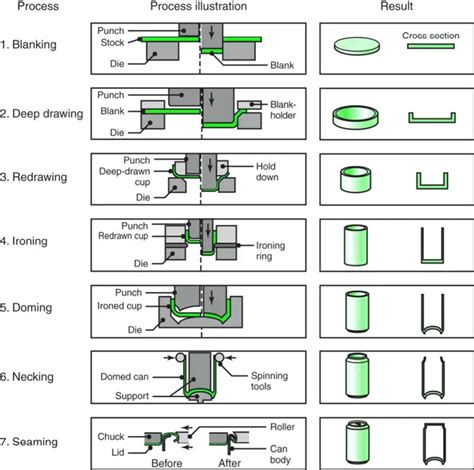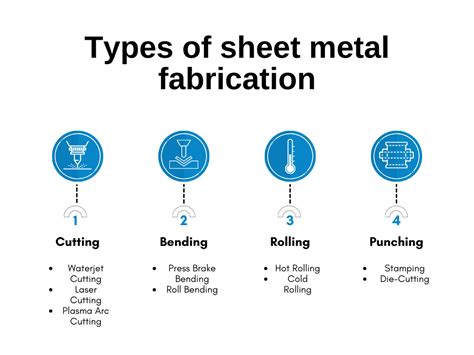advantages of sheet metal In my experience, working with sheet metal offers several advantages. First, it provides a remarkable weight-to-strength ratio, making it ideal for various industries such as aerospace, automotive, and construction. We make it easy to find all of the waterproof electrical enclosures you need in one place. Shop our selection of weatherproof boxes here, using the filtering tools in the sidebar to find the features, materials, and sizes that match your application’s requirements.
0 · various sheet metal processes
1 · types of sheet metal fabrication
2 · sheet metal fabrication guide
3 · sheet metal design and fabrication
4 · press forming of sheet metal
5 · forming in sheet metal
6 · disadvantages of sheet metal
7 · characteristics of sheet metal
IP65 Waterproof: The project box is IP65 Waterproof certificated, can protect against dust, corrosion and splashing water, ensure electrical components dry and effective in harsh environments.

various sheet metal processes
In my experience, working with sheet metal offers several advantages. First, it provides a remarkable weight-to-strength ratio, making it ideal for various industries such as aerospace, automotive, and construction. Advantages of Sheet Metal Forming. Despite the multitude of different processes available, many industries time and time again turn to sheet metal forming for their manufacturing needs. This versatile method is less . Sheet metal fabrication is the process of forming metal sheets to the desired shape using different manufacturing methods. The completion of a product usually comprises of many steps – from cutting and bending to .This section explains the sheet metal fabrication process, how precision sheet metal fabrication differs, the main advantages and disadvantages, as well as its common applications. How .
Sheet metal fabrication includes a variety of processes and can be used to create simple to complex shapes in anything from prototypes to high-volume productions. When combined with CNC machining or surface finishing .Many industries have taken advantage of the benefits of sheet metal fabrication, which has allowed them to craft high-precision parts and a wide range of custom-built designs that perform well. Compared to other materials, metals have . From its versatility to its cost-effectiveness, sheet metal fabrication offers numerous advantages, making it a top choice across industries. Let’s delve into seven key advantages highlighting why sheet metal fabrication is .
Sheet metal is far more durable than most other prototyping and production materials. As a result, they are more suited for functional applications. With the right treatments and finishes, these parts can survive the elements and . With the variety and dependability, sheet metal plays an important role in the construction, aerospace, automotive, and manufacturing industries. You can find this metal in truck and airplane bodies, the ducts and gutters of . Sheet metal is strong and durable, and sheet metal parts are often able to withstand greater pressure and heat than those made with plastic. In addition to this, aluminum, stainless steel, or surface-treated steel are all resistant to pressure, corrosion, and wear and tear. In my experience, working with sheet metal offers several advantages. First, it provides a remarkable weight-to-strength ratio, making it ideal for various industries such as aerospace, automotive, and construction.
Advantages of Sheet Metal Forming. Despite the multitude of different processes available, many industries time and time again turn to sheet metal forming for their manufacturing needs. This versatile method is less expensive than some other manufacturing methods, like casting or forging. Sheet metal fabrication is the process of forming metal sheets to the desired shape using different manufacturing methods. The completion of a product usually comprises of many steps – from cutting and bending to surface treatment and assembling.This section explains the sheet metal fabrication process, how precision sheet metal fabrication differs, the main advantages and disadvantages, as well as its common applications. How does sheet metal fabrication work?
Sheet metal fabrication includes a variety of processes and can be used to create simple to complex shapes in anything from prototypes to high-volume productions. When combined with CNC machining or surface finishing processes like powder coating, it is a versatile option for any industry.Many industries have taken advantage of the benefits of sheet metal fabrication, which has allowed them to craft high-precision parts and a wide range of custom-built designs that perform well. Compared to other materials, metals have proven to be more durable.
From its versatility to its cost-effectiveness, sheet metal fabrication offers numerous advantages, making it a top choice across industries. Let’s delve into seven key advantages highlighting why sheet metal fabrication is indispensable in modern manufacturing. 1. Precision Engineering: At Michaels Sheet Metal, precision is paramount.
Sheet metal is far more durable than most other prototyping and production materials. As a result, they are more suited for functional applications. With the right treatments and finishes, these parts can survive the elements and different work environments.

With the variety and dependability, sheet metal plays an important role in the construction, aerospace, automotive, and manufacturing industries. You can find this metal in truck and airplane bodies, the ducts and gutters of homes, medical tables, and .
Sheet metal is strong and durable, and sheet metal parts are often able to withstand greater pressure and heat than those made with plastic. In addition to this, aluminum, stainless steel, or surface-treated steel are all resistant to pressure, corrosion, and wear and tear. In my experience, working with sheet metal offers several advantages. First, it provides a remarkable weight-to-strength ratio, making it ideal for various industries such as aerospace, automotive, and construction. Advantages of Sheet Metal Forming. Despite the multitude of different processes available, many industries time and time again turn to sheet metal forming for their manufacturing needs. This versatile method is less expensive than some other manufacturing methods, like casting or forging. Sheet metal fabrication is the process of forming metal sheets to the desired shape using different manufacturing methods. The completion of a product usually comprises of many steps – from cutting and bending to surface treatment and assembling.
This section explains the sheet metal fabrication process, how precision sheet metal fabrication differs, the main advantages and disadvantages, as well as its common applications. How does sheet metal fabrication work?
types of sheet metal fabrication
Sheet metal fabrication includes a variety of processes and can be used to create simple to complex shapes in anything from prototypes to high-volume productions. When combined with CNC machining or surface finishing processes like powder coating, it is a versatile option for any industry.Many industries have taken advantage of the benefits of sheet metal fabrication, which has allowed them to craft high-precision parts and a wide range of custom-built designs that perform well. Compared to other materials, metals have proven to be more durable.
From its versatility to its cost-effectiveness, sheet metal fabrication offers numerous advantages, making it a top choice across industries. Let’s delve into seven key advantages highlighting why sheet metal fabrication is indispensable in modern manufacturing. 1. Precision Engineering: At Michaels Sheet Metal, precision is paramount.Sheet metal is far more durable than most other prototyping and production materials. As a result, they are more suited for functional applications. With the right treatments and finishes, these parts can survive the elements and different work environments.

metal roof an a frame house
Weatherproof NEMA Enclosures Designed to house and protect a wide range of equipment, Altelix Industrial NEMA rated enclosures include options such as cooling and heating, FRP, ABS or Steel construction and in multiple sizes and configurations.
advantages of sheet metal|types of sheet metal fabrication